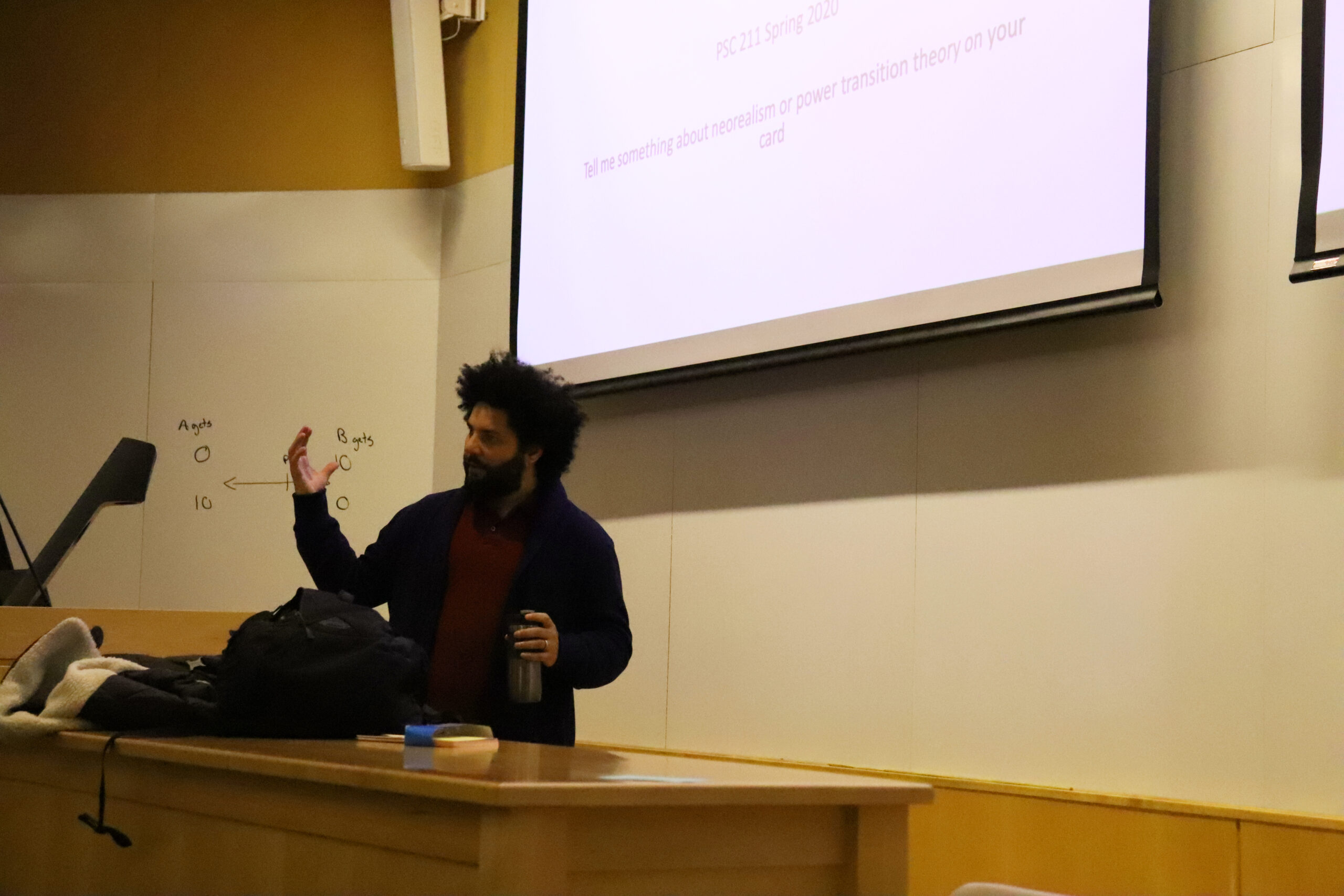Political Science Professor Brendan “Skip” Mark lectures on the book that changed his life. Photo by Nicole Wagner.
One book on human rights changed Brendan Mark’s life.
The book, entitled “Human Rights and Structural Adjustment,” convinced the now-professor of political science to focus his research on human rights and inequality as he pursued his degree at the State University of New York at Binghamton.
“I think a big turning point in my career was when I was researching for my thesis, I came across a human rights book and structural adjustment program, which was written by Rodwan Abouharb and David Cingranelli,” Mark said. “If I never came across that book, my career would have taken a completely different path.”
Mark has researched a wide variety of data and topics related to human rights and inequality to answer the questions he has asked for many years.
“I think my interests haven’t changed all that much from undergrad,” said Mark. “I started just asking the question of ‘why do we see so much suffering and inequality in the world?’ and ‘why aren’t the people who are suffering [rising] up and [changing] things?’ and over time I have come to realize that is a really complicated question.”
Mark still works with Cingranelli on a few projects in the present.
“I still work with David Cingrenelli and we are collecting data for the [Cingranelli-Richards] Human Rights data set which I’m pretty sure is the biggest human rights data set in the world,” Mark said. “We teach students how to do text analysis or how do you take a text document and turn it into numbers.”
He has learned from his many experiences as a tutor and teaching assistant to utilize different teaching methods to make sure that everyone in the classroom learns at the same pace.
“My teaching style is constantly bringing in new mediums of learning,” said Mark.
Elizabeth Skerrett, a senior majoring in history and political science has taken several courses with Mark since her junior year and has respected his teaching method from taking her first class with him. Skerrett accepted the position of being his teaching assistant for his human rights class to learn more from him.
“I love [his] teaching style because he incorporates a mix of lecturing, group discussion as well as simulations and other fun activities.” said Skerrett “He’s always working to keep the entire class engaged and challenged but still keeps the class fun.”
Working to consistently improve his teaching style, one of Mark’s most prominent goals is to provide students with new opportunities to learn in the classroom.
“I am going to keep trying to upgrade my teaching,” said Mark. “I really like feedback from students to figure out what I am doing that they find interesting or boring. Whether certain readings are good or bad and [what] current events are relevant.”
In the near future, Mark has a number of projects he has started over the past few years including a data set surrounding government repression that he wants to complete.
“If I find an interesting idea, I just want to explore it.” said Mark “Me and two researchers are working on a repression events data set called Red which looks at specific events where the government oppresses people and which state agents did it.”
Mark also wrote a dissertation about how IMF programs affect a number of factors in the real world that he hopes to translate into a book.
“My dissertation was how IMF programs affect economic rights, protests and repression and I’m hoping to turn that into a book with all of the other data I have collected.”
Since completing his dissertation about IMF programs, Mark has started a new study about the compliance factor that is involved with their loan programs.
“I have a data set on IMF compliance.” said Mark “If you take an IMF loan out which policies are you asked to do? Do you actually do them and what are the consequences of that?”





